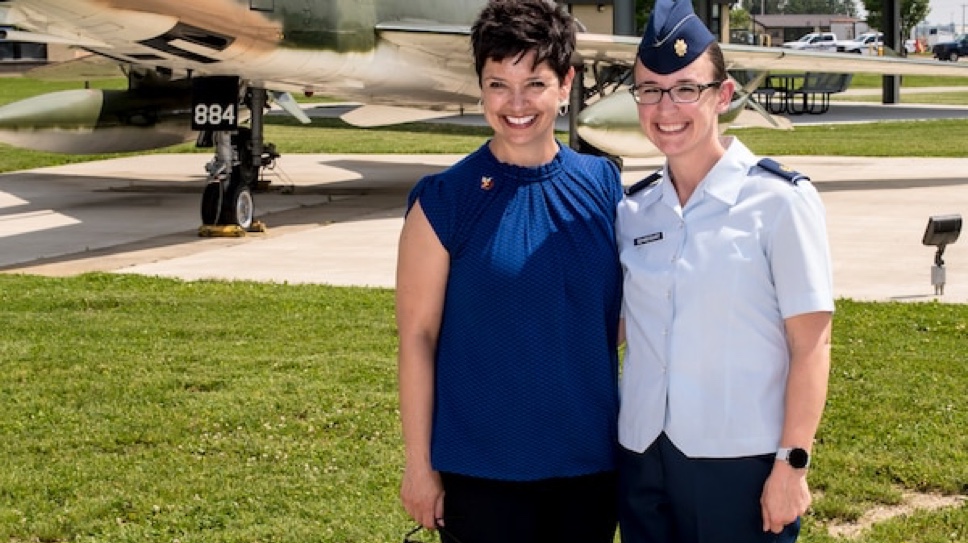Air Force servicemen and women, along with veterans no longer on active duty, can be susceptible to addiction. Mental health issues are also on the rise for people serving in the military because of trauma, transition stress, and other issues they face on the job.
They may serve long tours away from family, separated from their loved ones, kids, and a normal daily routine. Treatment is a great option to help them but spouses may struggle to understand the nature of addiction and how to best support their needs. Find out what to do if an Air Force spouse has an addiction.
Substance Abuse Patterns
Addiction is a challenge for anyone, especially a veteran. They are at increased risk for substance use disorders, mental health challenges, and more due to their line of work. Common substances that are abused include alcohol, drugs, and prescription medications. Air Force service members may drink on or off the clock, putting themselves and others at great risk. They may also experience impaired judgment, slower reaction times, memory issues, mood and behavioral changes, and other challenges.
Drug abuse is also not allowed but still continues with service members. They may put themselves in hazardous situations, miss work, not show up on time, and continue to see the effects of their substance use on themselves and others.
Mental Health Concerns
Disorders that include PTSD, depression, and anxiety also impact service members in the Air Force. Co-occurring disorders of substance use and mental health can be diagnosed in members from all service professions from Air Force to combat troops on the ground and others who experience trauma as an aftereffect of what they witness. The challenge with mental health issues is that men and women may not want help.
They may try to continue working hard to please their superiors and serve their country while they struggle to mentally and physically stay afloat. Spouses can often be concerned but unsure of how to help them seek support.
Overcoming Stigma
Spouses and loved ones of veterans or active duty personnel may struggle to overcome the stigma of mental health and addiction themselves. Mental health issues in the military are still not widely discussed in the open as much as they should be. Drug abuse is also swept under the rug or kept a secret because service professionals don’t want to risk their jobs, livelihoods, rank, or status.
Treatment may be seen as a last resort option and it can leave them wondering if they are alone. Feelings of loneliness and despair due to stigma can drive isolation and fear of seeking treatment. Here is what some family members can do:
- Seek help for family members of those with substance use disorders
- Seek support from other family members to help them navigate the conversation
- Talk to treatment coordinators and programs that have interventionists specializing in military trauma, mental health, and addiction
- Join online groups and seek help for how to support a loved one’s transition from active duty to civilian life and other challenges they may face
- Find peer support groups
There are also Congressionally funded and federally funded programs that help airmen and veterans find support. Veterans may have trouble accessing resources or support due to long wait times at VA hospitals.
Community Support Groups
Family and spouses can help their loved one by seeking peer support groups. These groups can be on base or off base and even online. Meeting with groups may be hard if the spouse is taking care of small children or the serviceman or woman is away on duty. It is difficult to find help for some spouses and admit what is going on. Community care providers often have resources for military spouses to seek help in a confidential way so they keep the information safe.
There are often groups that can help spouses learn how to cope with anger management, their mental health, family counseling or individual therapies, and communication skills to help bridge the gap with their spouse. Sobriety and recovery programs offer a chance to seek treatment. Often they include family in the process from the beginning so they all get help at the same time and are in the loop throughout the program.
Pushing Forward
Although it is not easy being the spouse of a veteran or someone serving in the Air Force, there is hope. Finding the right groups to connect with help bridge the gap for loved ones who want to help a spouse or family member with an addiction. Even if they know the signs are there, it may be hard to get them to admit the need for help. Perhaps they’ve tried and feel they failed to achieve recovery goals. Recovery is a lifelong process.
Nobody is ever healed from addiction, they can simply enter recovery and work the program every day so they maintain a sense of stability while working on the broader issues they face. Mental health complicates things but there are services available to the family and service members. With all the tools available, it is possible to help a loved one seek help and continue to journey forward one step at a time.
Forge is a place to come and recover your life from addiction. We help you reimagine what is possible and create the life you’ve been dreaming of.
Call us today: 1-888-224-7312



